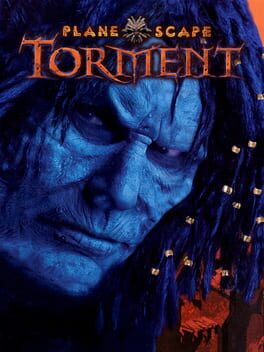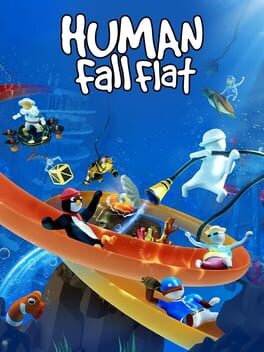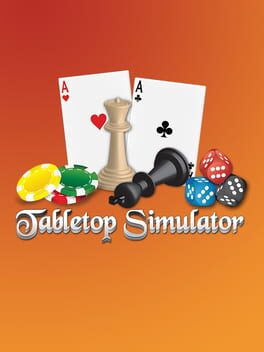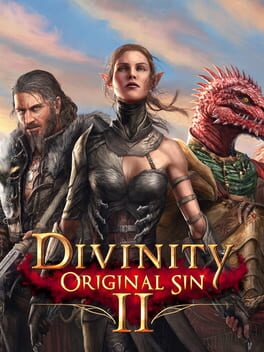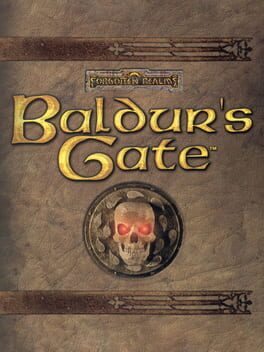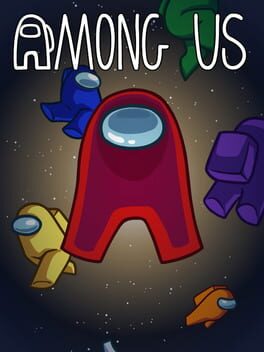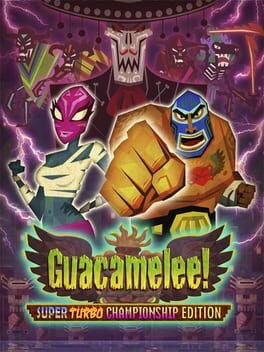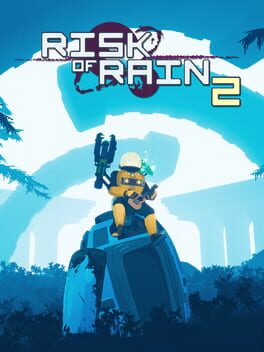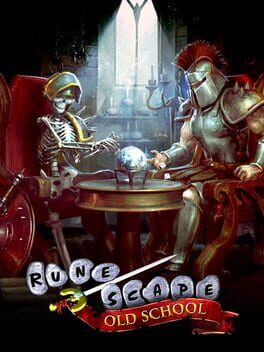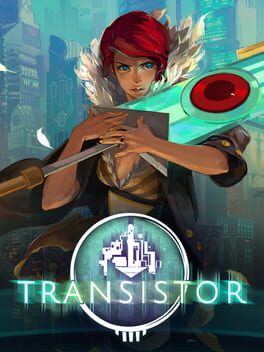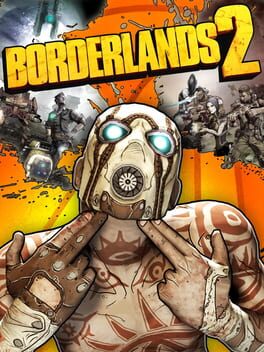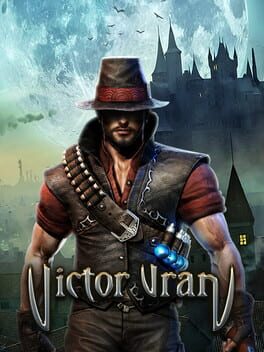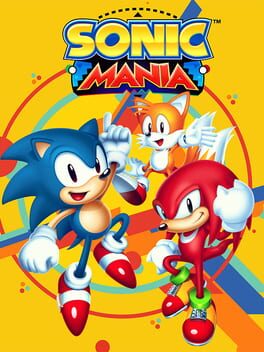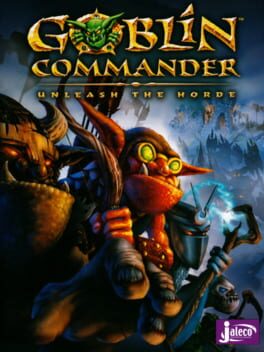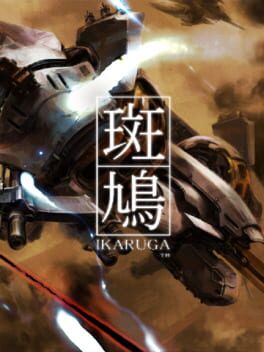synthezoid
1999
2016
2015
A shockingly functional engine for playing a lot of great games, but it's not really a game.
For reference, here's an overlong list of some of my favorite tabletop games that are available on here:
7 Wonders: Duel
A Feast for Odin
Aeon's End
Arboretum
Azul
Battle Line
Blokus (and Blokus Duo)
Brass: Birmingham
Carcassonne (one of them has fully automated placement and scoring--it's beautiful)
Concordia
Dominion
Inis
Marvel Champions
Modern Art
Navegador
Onitama
Orleans
Shogi
The Castles of Burgundy
The Grizzled
The King is Dead
The Quest for El Dorado
The Resistance: Avalon
The Voyages of Marco Polo
Tigris and Euphrates
Yokohama
Be sure to buy and support your favorite board games if you try them on here.
For reference, here's an overlong list of some of my favorite tabletop games that are available on here:
7 Wonders: Duel
A Feast for Odin
Aeon's End
Arboretum
Azul
Battle Line
Blokus (and Blokus Duo)
Brass: Birmingham
Carcassonne (one of them has fully automated placement and scoring--it's beautiful)
Concordia
Dominion
Inis
Marvel Champions
Modern Art
Navegador
Onitama
Orleans
Shogi
The Castles of Burgundy
The Grizzled
The King is Dead
The Quest for El Dorado
The Resistance: Avalon
The Voyages of Marco Polo
Tigris and Euphrates
Yokohama
Be sure to buy and support your favorite board games if you try them on here.
I've only beaten this once, but I've escaped Fort Joy at least five times, both solo and with different groups. That should tell you how much I enjoy the game mechanically to be excited to start the campaign over that many times on a whim, but it should also tell you how little thrust the story elements have that it took me so long to beat it just once. It's one of the only CRPGs where I'm never disappointed to see a dialogue end with combat--it's just that fun. This works especially well in multiplayer, since there's not as much pressure to save scum for the easy route when fighting your way out of a tough situation is so satisfying.
And even outside of combat, there are some fun ways to use your party's powers to solve problems. Once, we were on a quest to kill a particular man, but doing so would anger all his cohorts and start a bloody, messy brawl that we didn't want any part in. So what did we do? We used a ring of teleportation to zap him out of anyone else's sight and pummeled him in a back alley. The game is full of little things like that which most other games would script or invisible-wall you out of doing, and that's where it shines. In fact, the world is often designed with this in mind, so when you can't simply cheese your way around an obstacle, pains have clearly been taken to make it feel like a natural part of the world rather than an arbitrary roadblock or limitation. Though the dialogues and non-companion characters tend not to get very deep, they're fun and functional enough to keep the rest of the game shiny and smooth.
This, in turn, makes me a lot less interested in the capital-R Role-playing--playing as a custom character gives you strictly fewer dialogue options than the pre-made "origin" characters (think playable companions), whereas I've retained very little sense of the values, history, or personality of my custom characters--but that doesn't stop me from getting joyfully lost in its immersive-sim-esque creativity. If Larian's upcoming Baldur's Gate 3 steps up the writing and atmosphere but retains the absolutely stunning way this game latches into my brain when I play it, it'll be an all-time great. Maybe this one already is.
[edit from 2023: oh BG3 is really good lol]
And even outside of combat, there are some fun ways to use your party's powers to solve problems. Once, we were on a quest to kill a particular man, but doing so would anger all his cohorts and start a bloody, messy brawl that we didn't want any part in. So what did we do? We used a ring of teleportation to zap him out of anyone else's sight and pummeled him in a back alley. The game is full of little things like that which most other games would script or invisible-wall you out of doing, and that's where it shines. In fact, the world is often designed with this in mind, so when you can't simply cheese your way around an obstacle, pains have clearly been taken to make it feel like a natural part of the world rather than an arbitrary roadblock or limitation. Though the dialogues and non-companion characters tend not to get very deep, they're fun and functional enough to keep the rest of the game shiny and smooth.
This, in turn, makes me a lot less interested in the capital-R Role-playing--playing as a custom character gives you strictly fewer dialogue options than the pre-made "origin" characters (think playable companions), whereas I've retained very little sense of the values, history, or personality of my custom characters--but that doesn't stop me from getting joyfully lost in its immersive-sim-esque creativity. If Larian's upcoming Baldur's Gate 3 steps up the writing and atmosphere but retains the absolutely stunning way this game latches into my brain when I play it, it'll be an all-time great. Maybe this one already is.
[edit from 2023: oh BG3 is really good lol]
1998
Yeah so when people say Baldur's Gate is an all-time great RPG that is still a benchmark for writing, atmosphere, memorable characters, and world design, they're actually talking about Baldur's Gate II. This one was a massive leap forward for RPGs, but it's so full of rough edges that the second game and later CRPGs successfully smoothed over that it hardly compares to them. It's also severely padded with repetitive encounters and uninteresting side quests--totally lacking in respect for your time.
What would become a defining element of Bioware's great games to come--the unforgettable companions and the choice-driven conversations the player can have with them--are barely here. Random party banter which lets you flesh out your relationship with them is practically nonexistent (interestingly, except for the new Enhanced Edition characters, which range from bland to neat), which makes the writing feel a bit sparse, especially when so many quests, despite the regular dialogue trees, ultimately devolve into killing a pack of enemies here or a horde of them there. It makes you wonder what your choices really added when it ended up in a similar combat scenario either way--and there are so many similar combat scenarios strewn a bit too liberally throughout the game. This becomes less of an issue in the dense, dialogue-rich city of Baldur's Gate, but it takes so long to get there that the wait doesn't feel justified. Meaningless fights pad too much of the open world and the dungeons, but experience points aren't meted out generously enough to make some of the tough required fights fair or fun if you rush past optional content.
The combat itself isn't a horrible system, but AD&D is simply too much of a slog at low levels--and this entire game is low level AD&D. While the real time with pause fights allow for a blend of strategy (when tougher fights demand planning, timing, and positioning) and speed (when the game throws wads of trash mobs at you to pad a forest or dungeon), it's ultimately one of the weakest parts. Again, it feels better in BG2 (or successors like Pillars of Eternity) simply because you're actually strong enough in that one to have some real power and flexibility, which is where RTWP combat feels the best. It's not horrible here, just a bit of a jumbled mess waiting for refinement. The pathing AI will have you and your companions enthusiastically running to their death, and the encounter design doesn't help to massage out the kinks in the combat. Enemies are frequently loaded with irritating powers like poison and petrification that will inevitably force reloads due to sheer bad luck, even if you bring antidotes or try to weave around them. Even Planescape: Torment, famous for having some of the weakest combat of the Infinity Engine games, was occasionally more fun precisely because it was rarely if ever that hard. Sure, it didn't demand any strategy, but at least you could click on some dudes or run away and it would be over shortly, and what little combat it demanded usually carried narrative weight or at least fit the tumultuous setting. Being tossed into unwinnable fights doesn't demand any strategy because "reload and come back later" or "turn on Story Mode difficulty for this fight" isn't strategy, it's something a Gamefaqs walkthrough tells you to do.
It's not an awful game, and there's a lot to love. It captures the feeling of wandering aimlessly around the Forgotten Realms at low level (complete with encountering Drizzt and Elminster in passing) where everything is dangerous fairly well, but that alone doesn't carry the game, and in fact starts to get tedious and frustrating well before you're done. Everything it does well is done better and sooner in Shadows of Amn. And some will tell you that it's necessary to enjoy its vastly superior cousin, but in my experience, that isn't the case, even if people who stuck with the first seem to have a stronger attachment to the returning characters. I shudder to think how many people in recent years have bought this game, tried it, and put it down when it got too boring, tough, or repetitive, then never tried the second game assuming it was more of the first.
What would become a defining element of Bioware's great games to come--the unforgettable companions and the choice-driven conversations the player can have with them--are barely here. Random party banter which lets you flesh out your relationship with them is practically nonexistent (interestingly, except for the new Enhanced Edition characters, which range from bland to neat), which makes the writing feel a bit sparse, especially when so many quests, despite the regular dialogue trees, ultimately devolve into killing a pack of enemies here or a horde of them there. It makes you wonder what your choices really added when it ended up in a similar combat scenario either way--and there are so many similar combat scenarios strewn a bit too liberally throughout the game. This becomes less of an issue in the dense, dialogue-rich city of Baldur's Gate, but it takes so long to get there that the wait doesn't feel justified. Meaningless fights pad too much of the open world and the dungeons, but experience points aren't meted out generously enough to make some of the tough required fights fair or fun if you rush past optional content.
The combat itself isn't a horrible system, but AD&D is simply too much of a slog at low levels--and this entire game is low level AD&D. While the real time with pause fights allow for a blend of strategy (when tougher fights demand planning, timing, and positioning) and speed (when the game throws wads of trash mobs at you to pad a forest or dungeon), it's ultimately one of the weakest parts. Again, it feels better in BG2 (or successors like Pillars of Eternity) simply because you're actually strong enough in that one to have some real power and flexibility, which is where RTWP combat feels the best. It's not horrible here, just a bit of a jumbled mess waiting for refinement. The pathing AI will have you and your companions enthusiastically running to their death, and the encounter design doesn't help to massage out the kinks in the combat. Enemies are frequently loaded with irritating powers like poison and petrification that will inevitably force reloads due to sheer bad luck, even if you bring antidotes or try to weave around them. Even Planescape: Torment, famous for having some of the weakest combat of the Infinity Engine games, was occasionally more fun precisely because it was rarely if ever that hard. Sure, it didn't demand any strategy, but at least you could click on some dudes or run away and it would be over shortly, and what little combat it demanded usually carried narrative weight or at least fit the tumultuous setting. Being tossed into unwinnable fights doesn't demand any strategy because "reload and come back later" or "turn on Story Mode difficulty for this fight" isn't strategy, it's something a Gamefaqs walkthrough tells you to do.
It's not an awful game, and there's a lot to love. It captures the feeling of wandering aimlessly around the Forgotten Realms at low level (complete with encountering Drizzt and Elminster in passing) where everything is dangerous fairly well, but that alone doesn't carry the game, and in fact starts to get tedious and frustrating well before you're done. Everything it does well is done better and sooner in Shadows of Amn. And some will tell you that it's necessary to enjoy its vastly superior cousin, but in my experience, that isn't the case, even if people who stuck with the first seem to have a stronger attachment to the returning characters. I shudder to think how many people in recent years have bought this game, tried it, and put it down when it got too boring, tough, or repetitive, then never tried the second game assuming it was more of the first.
2018
Not the first video game to adapt social deduction and traitor mechanics (remember Town of Salem?) popularized by board games like The Resistance (colon Avalon), Battlestar Galactica, and Werewolf/Mafia, but the first to reach this level of mainstream success. I don't entirely understand why this one in particular took off, but I'm not complaining. It's loads of fun even if it isn't perfect. The digital chat will never replace the joy of arguing at a table with your friends about why they're lying (spoiler: you're the one lying), but it works unexpectedly well. A private lobby with friends is obviously better, though there's always someone who breaks it a bit by talking outside of meetings.
The addition of semi-random minigames for crewmates to solve is a strange but surprisingly fun wrench in the gears.
The addition of semi-random minigames for crewmates to solve is a strange but surprisingly fun wrench in the gears.
2019
Sensory overstimulation in 3D. How does anyone follow what the fuck is going on in this game? When I play with friends, they always ask me "how'd you die?" and every time I say "I don't know." There's so much visual clutter yet so little feedback that something is suddenly tearing through my health bar. It doesn't even get to be tense because it's so unceremonious. Deaths are never punctuated with a "fuck," but a "huh?" Maybe I'm missing something.
The game worlds are expansive yet repetitive, and largely empty beyond the same enemies spawning over and over again to fill the space. Outside of a few interesting movement options on some characters, traversing it is completely uninteresting. Holding shift to sprint helps, but not enough to stop me from wishing traversal was either faster or significantly more engaging. Any kind of platforming or momentum mechanics, even if it wasn't that much faster, would be more bearable. Anything would be welcome, just to add a basic, functional level of engagement to a game that is otherwise about leisurely walking around the projectiles of enemies thirty feet away to trade them some of your own, or, if you're feeling dastardly and playing the appropriate character, approaching to hit them with your fist.
I also don't understand the baffling choice to start players off with the least fun character. [This was improved by the recent update that lets you pick from two to start--the Huntress is less boring, and her 'replacement' in unlock order, the Bandit, is the most fun I've ever had with this game.] I probably wouldn't have ever picked it back up after my first session if I hadn't unlocked the Loader so quickly. The Loader itself is a missed opportunity--how come only one character gets a grappling hook? They're always the best part of any game, and it would help to rectify the dearth of interesting movement tools other characters have.
Navigation in these big, empty worlds with most characters is a matter of holding W and shooting anything you see along the way. Most of the things you find will only be more enemies to shoot or items that you get to press E on. Nothing truly interesting happens getting from point A to B for 90% of the game, which might not be such a big deal if the path from A to B weren't so long and so padded, or if every character had platforming or momentum-driven mechanics. So far, the Bandit is the only character I've found who makes combat engaging enough in itself to ignore how little is truly happening.
Why don't the items in the three-pronged capsules have descriptions before you buy them? They're the same across runs, it's not like what each item does is a secret. It just wastes new players' time as they guess which item might be relevant to them. Then again, the opportunities to actually choose between items that you get are few and far between. There's very little in the way of personalization or buildmaking. There are instead just a lot of generically useful items stacking on top of each other, which makes only a select few truly memorable. This is exacerbated by the fact that so many basic items will be repeated across runs--your character will end up feeling quite similar from run to run. The whole process feels automatic rather than exciting.
Fighting the same boss multiple times in the same run is hugely anticlimactic--so much so that when I first wrote this, I genuinely worried that I was misremembering that detail, because why would you design a roguelite where the level-end bosses can repeat later on? Sadly, I wasn't. Fighting the same boss twice in twenty minutes sure doesn't help the game to feel more substantial or less padded. In fact, much the opposite. In a genre where you can finish most games from scratch in a few hours (if you're good enough), the fact that anything at all feels like padding is the most telling indictment I can think of.
The game worlds are expansive yet repetitive, and largely empty beyond the same enemies spawning over and over again to fill the space. Outside of a few interesting movement options on some characters, traversing it is completely uninteresting. Holding shift to sprint helps, but not enough to stop me from wishing traversal was either faster or significantly more engaging. Any kind of platforming or momentum mechanics, even if it wasn't that much faster, would be more bearable. Anything would be welcome, just to add a basic, functional level of engagement to a game that is otherwise about leisurely walking around the projectiles of enemies thirty feet away to trade them some of your own, or, if you're feeling dastardly and playing the appropriate character, approaching to hit them with your fist.
I also don't understand the baffling choice to start players off with the least fun character. [This was improved by the recent update that lets you pick from two to start--the Huntress is less boring, and her 'replacement' in unlock order, the Bandit, is the most fun I've ever had with this game.] I probably wouldn't have ever picked it back up after my first session if I hadn't unlocked the Loader so quickly. The Loader itself is a missed opportunity--how come only one character gets a grappling hook? They're always the best part of any game, and it would help to rectify the dearth of interesting movement tools other characters have.
Navigation in these big, empty worlds with most characters is a matter of holding W and shooting anything you see along the way. Most of the things you find will only be more enemies to shoot or items that you get to press E on. Nothing truly interesting happens getting from point A to B for 90% of the game, which might not be such a big deal if the path from A to B weren't so long and so padded, or if every character had platforming or momentum-driven mechanics. So far, the Bandit is the only character I've found who makes combat engaging enough in itself to ignore how little is truly happening.
Why don't the items in the three-pronged capsules have descriptions before you buy them? They're the same across runs, it's not like what each item does is a secret. It just wastes new players' time as they guess which item might be relevant to them. Then again, the opportunities to actually choose between items that you get are few and far between. There's very little in the way of personalization or buildmaking. There are instead just a lot of generically useful items stacking on top of each other, which makes only a select few truly memorable. This is exacerbated by the fact that so many basic items will be repeated across runs--your character will end up feeling quite similar from run to run. The whole process feels automatic rather than exciting.
Fighting the same boss multiple times in the same run is hugely anticlimactic--so much so that when I first wrote this, I genuinely worried that I was misremembering that detail, because why would you design a roguelite where the level-end bosses can repeat later on? Sadly, I wasn't. Fighting the same boss twice in twenty minutes sure doesn't help the game to feel more substantial or less padded. In fact, much the opposite. In a genre where you can finish most games from scratch in a few hours (if you're good enough), the fact that anything at all feels like padding is the most telling indictment I can think of.
2013
Some games don't respect your time. This game breaks your time over its knee and says "life is meaningless, your time never had value, and you were a fool to think otherwise." It's a minimum-wage job with more steps and less pay. Literally the only good this game has ever done the world is put food on the table for some savvy Venezuelans. I won't pretend to think otherwise. (https://www.polygon.com/features/2020/5/27/21265613/runescape-is-helping-venezuelans-survive)
2014
2012
ARPG meets FPS: the quintessential looter-shooter. The itemization and story driven campaign structure mirror Diablo 2 perfectly, as does the lack of an endgame beyond replaying the game on higher difficulties.
Another thing that sets Borderlands and Diablo apart from their competition is their distinctive identities. Diablo's dark, gothic atmosphere is iconic, and Borderlands' comic stylings and irreverent humor are just as distinctive and memorable. And popular. It's your call how funny you think Zer0 saying his "trap card" voice line for the thousandth time is, but a lot of people love this game's humor and identity. Personally, I don't think it has aged all that well. When it came out, this sort of self-aware, non-stop humor was less common, but it doesn't feel as fresh in the year 2020, and once the shock value wears off, it doesn't feel as clever as it wants to be. Still, it's not badly written. The characters range from tolerable to likable and the actual narrative is fine--in fact, the main questline gets pretty engaging by the end, though it takes a while to pick up and some of the "oops, you've been mildly inconvenienced, go finish a new questline to get back to the original goal" missions break the pacing a bit much. (The side content runs the gamut from varied, well-scripted unique challenges to "kill x things" or "fetch x" quests--but that's okay, I suppose, since ARPGs usually manage to make those sorts of quests fun enough, and this game is no exception.) But I rarely find myself actually laughing at it-- most of the time I'm idly amused by it while I sprint my way through the real appeal of the game: shooting enemies, killing bosses, and collecting better randomized gear.
That part of the game is pretty good. The gunplay isn't as tight or polished as the best FPSes, but those games don't have this one's itemization or RPG systems, so it's a fair tradeoff. Still, the simple act of shooting a gun could stand to be a bit more satisfying. The reliance on an accuracy stat to keep your gun from swaying wildly while your mouse is idle means that it feels better the longer you play, but I'm not sure it's a good idea to make the player wait for the gunplay to actually feel good. It's similar to what the original Deus Ex does, actually, but Deus Ex offers ways to play the game beyond shooting things. Here, having to invest points in simply being able to shoot where you aim feels strange.
The classes are cool, and while the skill tree system is fairly simple, it offers several different ways to build each class. I'm not sure how viable they all are, but, being a pretty casual-friendly game, it seems like you're not likely to break your character by the end of the story mode unless you spread your points recklessly, and even then, you can respec easily enough. Some abilities seem more balanced around group play (and classes-- my squishy, sneaky, sniper-focused assassin has a much harder time alone in some areas than others), but there's not enough scaling to make drop-in, drop-out play seamless. When all players are very close in level, co-op is a great experience, but unless you schedule your play with your friends or roll a separate character to play with them, it might get a bit awkward keeping everyone in sync. Which is a shame, because having a set of allies with a variety of abilities is genuinely more fun than playing alone. There are no closed servers, so a trading economy like in Diablo 2 or Path of Exile is absolutely not a thing, nor are there any opportunities to find random players like the MMO-lite scenarios of Destiny, but that does at least mean you're free to play offline all you want. Unfortunately the game isn't very moddable, so there's not much in the way of custom content available.
All in all, it's a pretty compelling, genre-blending effort, with a hell of a lot more polish than the first Borderlands game (and I haven't yet played the third; maybe it totally outclasses this one--but then, that one isn't available in a bundle with a bunch of DLC and a whole other game for a few dollars on sale). But Borderlands 2 has some warts as well. Jumping is annoyingly floaty and the environments are occasionally awkward to navigate. The sensitivity settings are a bit more coarse than I'd like for a PC game. There's no autoloot button for nearby ammo or currency, leading to a lot of unnecessary E key mashing. The gunplay is just decent, not great. You'll either find the writing great or grating. And, as mentioned, the endgame is limited, meaning that your motivation to keep leveling and farming better gear will be dependent on how much you like repeating the main quest. But at least going through the main quest is, by and large, a pretty good time.
Another thing that sets Borderlands and Diablo apart from their competition is their distinctive identities. Diablo's dark, gothic atmosphere is iconic, and Borderlands' comic stylings and irreverent humor are just as distinctive and memorable. And popular. It's your call how funny you think Zer0 saying his "trap card" voice line for the thousandth time is, but a lot of people love this game's humor and identity. Personally, I don't think it has aged all that well. When it came out, this sort of self-aware, non-stop humor was less common, but it doesn't feel as fresh in the year 2020, and once the shock value wears off, it doesn't feel as clever as it wants to be. Still, it's not badly written. The characters range from tolerable to likable and the actual narrative is fine--in fact, the main questline gets pretty engaging by the end, though it takes a while to pick up and some of the "oops, you've been mildly inconvenienced, go finish a new questline to get back to the original goal" missions break the pacing a bit much. (The side content runs the gamut from varied, well-scripted unique challenges to "kill x things" or "fetch x" quests--but that's okay, I suppose, since ARPGs usually manage to make those sorts of quests fun enough, and this game is no exception.) But I rarely find myself actually laughing at it-- most of the time I'm idly amused by it while I sprint my way through the real appeal of the game: shooting enemies, killing bosses, and collecting better randomized gear.
That part of the game is pretty good. The gunplay isn't as tight or polished as the best FPSes, but those games don't have this one's itemization or RPG systems, so it's a fair tradeoff. Still, the simple act of shooting a gun could stand to be a bit more satisfying. The reliance on an accuracy stat to keep your gun from swaying wildly while your mouse is idle means that it feels better the longer you play, but I'm not sure it's a good idea to make the player wait for the gunplay to actually feel good. It's similar to what the original Deus Ex does, actually, but Deus Ex offers ways to play the game beyond shooting things. Here, having to invest points in simply being able to shoot where you aim feels strange.
The classes are cool, and while the skill tree system is fairly simple, it offers several different ways to build each class. I'm not sure how viable they all are, but, being a pretty casual-friendly game, it seems like you're not likely to break your character by the end of the story mode unless you spread your points recklessly, and even then, you can respec easily enough. Some abilities seem more balanced around group play (and classes-- my squishy, sneaky, sniper-focused assassin has a much harder time alone in some areas than others), but there's not enough scaling to make drop-in, drop-out play seamless. When all players are very close in level, co-op is a great experience, but unless you schedule your play with your friends or roll a separate character to play with them, it might get a bit awkward keeping everyone in sync. Which is a shame, because having a set of allies with a variety of abilities is genuinely more fun than playing alone. There are no closed servers, so a trading economy like in Diablo 2 or Path of Exile is absolutely not a thing, nor are there any opportunities to find random players like the MMO-lite scenarios of Destiny, but that does at least mean you're free to play offline all you want. Unfortunately the game isn't very moddable, so there's not much in the way of custom content available.
All in all, it's a pretty compelling, genre-blending effort, with a hell of a lot more polish than the first Borderlands game (and I haven't yet played the third; maybe it totally outclasses this one--but then, that one isn't available in a bundle with a bunch of DLC and a whole other game for a few dollars on sale). But Borderlands 2 has some warts as well. Jumping is annoyingly floaty and the environments are occasionally awkward to navigate. The sensitivity settings are a bit more coarse than I'd like for a PC game. There's no autoloot button for nearby ammo or currency, leading to a lot of unnecessary E key mashing. The gunplay is just decent, not great. You'll either find the writing great or grating. And, as mentioned, the endgame is limited, meaning that your motivation to keep leveling and farming better gear will be dependent on how much you like repeating the main quest. But at least going through the main quest is, by and large, a pretty good time.
2015
This is a game concept I'd been looking for for a while: a Diablo-style ARPG with a bigger emphasis on the action portion. I love the deep character building and variety of gameplay styles of Diablo, Path of Exile, Grim Dawn, and so on, but sometimes, some of those games devolve into idle button clicking to grind and farm higher. A more tactical take on the genre would be a breath of fresh air. And so this game is.
It introduces dodge rolling (don't say Dark Souls!) like in Dark Souls, (fuck!) a new WASD and controller-friendly control scheme (Diablo-style click-to-walk is also an option, but this game is frankly not built for that), and even a jump button. Also like Dark Souls (sorry) your abilities and playstyle are determined more by your weapon than your class. The result is a game that asks more of your attention and dexterity, but unfortunately, it dials back the other parts that make the best ARPGs just that.
Remember how I said weapons dictate your playstyle more than class? This is the result of the classes being pretty simple in effect and not too engaging. There aren't a whole lot of stats to tinker with on level up, and most of the "building" comes in a set of cards you can pick for your character that provide passive stat boosts alongside the affixes on your gear. Yes, this puts more Action in Action RPG, but it severely cuts down on the RPG side. That's not to say that there aren't plenty of possible ways to play, but unless the game introduces serious complexity that I haven't yet discovered down the road, it simply doesn't have the depth to compare to most of its competitors in that regard. While streamlining can be nice sometimes, it feels like there's very little class or character fantasy to latch onto and say "this is MY character, and they reflect how I want to play the game." The result is that the customization which does exist in this game does very little to capture the imagination and encourage creative new ways of playing.
The weapon you wield mostly decides what attacks you'll have access to, not you, the player. There are no multifaceted skill trees like Diablo 2 or skill astral cartographies like Path of Exile. Just you, a weapon, and a few other details you can tinker with. There are just few enough points of customization that it almost felt arbitrary what I picked since the odds of them actually coming together to make a build that was meaningfully better were so slim. Maybe in the endgame this becomes relevant, but if any ARPG should have exciting leveling, it's this one, since it promises more engagement no matter what your build is. The problem is that you're not promised anything particularly exciting for hitting the next level.
Luckily, the core gameplay loop is pretty fun.
The action combat works, though it will depend heavily on how you click with your weapon of choice. (I really expected rapiers to be fun, but honestly, they feel slow and clunky compared to the big AOE of a shotgun, chunky swings of a scythe, or chain lightning madness of a lightning gun.) It isn't the most exciting action gameplay, but it works well enough to be engaging for a bit, if not exactly addicting. The enemies have a solid variety, and unlike certain games in the genre, have a variety of abilities, behaviors, and playstyles that are worth considering while you play. It's not a game about simply one-shotting or getting one-shot. Still, it isn't quite as satisfying at its core as the addition of first-person shooting to the loot-grinding ARPG formula in something like Borderlands, and it lacks the joyful simplicity of clicking on dudes in Diablo, but it really is a good time in moderation. Having both a jump and a roll does feel redundant, however, and with the isometric view, jumping is a bit awkward and has a habit of getting snagged on the level.
Another strong point of Diablo (and some other great ARPGs) has always been its compelling lore and powerful atmosphere. This game's story is largely a matter of generic cliche, though if you're not annoyed by the narrator, you might find the tone to your liking. It's pretty enough to look at. It's neither as colorful as Torchlight nor as dark as Diablo, but it occupies a comfortable space in between. The lead is also voiced by Geralt of Rivia, which is a fun touch, but unfortunately he doesn't have all that much personality. It's pleasant, but it won't keep you in the world unless the gameplay hooks you.
These are all fairly early impressions, but after a few hours, I think I'll only come back to this game when I'm in the mood. I might beat it eventually. I probably won't replay it or proceed very far into whatever endgame content it has. But at its core, it is a good game. I do wish more developers would try to find ways of adding tactics and engagement to this genre, but this one feels like an incomplete first stab at that. The first hour or so was exciting, honestly, but after that, I realized how little I was looking forward to progressing, since it seemed like there wasn't much new to see. Still, I've enjoyed it so far and might come back to it and find I was missing out on what makes it great.
If you're turned off by ARPGs that feel like brainless farming, or if you love the genre but want to see it taken in a different direction, try this, but maybe get it on sale. It's not the future of ARPGs, but hopefully it's a slight premonition.
Then again, if I want a dead simple ARPG with rolling, maybe I'll just play Minecraft Dungeons.
It introduces dodge rolling (don't say Dark Souls!) like in Dark Souls, (fuck!) a new WASD and controller-friendly control scheme (Diablo-style click-to-walk is also an option, but this game is frankly not built for that), and even a jump button. Also like Dark Souls (sorry) your abilities and playstyle are determined more by your weapon than your class. The result is a game that asks more of your attention and dexterity, but unfortunately, it dials back the other parts that make the best ARPGs just that.
Remember how I said weapons dictate your playstyle more than class? This is the result of the classes being pretty simple in effect and not too engaging. There aren't a whole lot of stats to tinker with on level up, and most of the "building" comes in a set of cards you can pick for your character that provide passive stat boosts alongside the affixes on your gear. Yes, this puts more Action in Action RPG, but it severely cuts down on the RPG side. That's not to say that there aren't plenty of possible ways to play, but unless the game introduces serious complexity that I haven't yet discovered down the road, it simply doesn't have the depth to compare to most of its competitors in that regard. While streamlining can be nice sometimes, it feels like there's very little class or character fantasy to latch onto and say "this is MY character, and they reflect how I want to play the game." The result is that the customization which does exist in this game does very little to capture the imagination and encourage creative new ways of playing.
The weapon you wield mostly decides what attacks you'll have access to, not you, the player. There are no multifaceted skill trees like Diablo 2 or skill astral cartographies like Path of Exile. Just you, a weapon, and a few other details you can tinker with. There are just few enough points of customization that it almost felt arbitrary what I picked since the odds of them actually coming together to make a build that was meaningfully better were so slim. Maybe in the endgame this becomes relevant, but if any ARPG should have exciting leveling, it's this one, since it promises more engagement no matter what your build is. The problem is that you're not promised anything particularly exciting for hitting the next level.
Luckily, the core gameplay loop is pretty fun.
The action combat works, though it will depend heavily on how you click with your weapon of choice. (I really expected rapiers to be fun, but honestly, they feel slow and clunky compared to the big AOE of a shotgun, chunky swings of a scythe, or chain lightning madness of a lightning gun.) It isn't the most exciting action gameplay, but it works well enough to be engaging for a bit, if not exactly addicting. The enemies have a solid variety, and unlike certain games in the genre, have a variety of abilities, behaviors, and playstyles that are worth considering while you play. It's not a game about simply one-shotting or getting one-shot. Still, it isn't quite as satisfying at its core as the addition of first-person shooting to the loot-grinding ARPG formula in something like Borderlands, and it lacks the joyful simplicity of clicking on dudes in Diablo, but it really is a good time in moderation. Having both a jump and a roll does feel redundant, however, and with the isometric view, jumping is a bit awkward and has a habit of getting snagged on the level.
Another strong point of Diablo (and some other great ARPGs) has always been its compelling lore and powerful atmosphere. This game's story is largely a matter of generic cliche, though if you're not annoyed by the narrator, you might find the tone to your liking. It's pretty enough to look at. It's neither as colorful as Torchlight nor as dark as Diablo, but it occupies a comfortable space in between. The lead is also voiced by Geralt of Rivia, which is a fun touch, but unfortunately he doesn't have all that much personality. It's pleasant, but it won't keep you in the world unless the gameplay hooks you.
These are all fairly early impressions, but after a few hours, I think I'll only come back to this game when I'm in the mood. I might beat it eventually. I probably won't replay it or proceed very far into whatever endgame content it has. But at its core, it is a good game. I do wish more developers would try to find ways of adding tactics and engagement to this genre, but this one feels like an incomplete first stab at that. The first hour or so was exciting, honestly, but after that, I realized how little I was looking forward to progressing, since it seemed like there wasn't much new to see. Still, I've enjoyed it so far and might come back to it and find I was missing out on what makes it great.
If you're turned off by ARPGs that feel like brainless farming, or if you love the genre but want to see it taken in a different direction, try this, but maybe get it on sale. It's not the future of ARPGs, but hopefully it's a slight premonition.
Then again, if I want a dead simple ARPG with rolling, maybe I'll just play Minecraft Dungeons.
2017
Incredibly high quality, with more polish than the classics ever had, and a great blend of callbacks and new level mechanics. Not the hardest, but victory isn't handed out either. This might actually be the best Sonic game for how well it recognizes what makes Sonic fun and how little it gets in the way of that-- no nonsense cutscenes or story elements, no werehog levels (the only alternate modes are optional!), but a lot of going fast, a lot of exploration, a lot of alternate paths and secret powerups, a lot of neat boss battles... it isn't just Sonic the Hedgehog as it was on the Genesis-- it's Sonic as you remember it, or maybe even better. And if you've never played a Sonic game before? You're in for a treat.
2001
